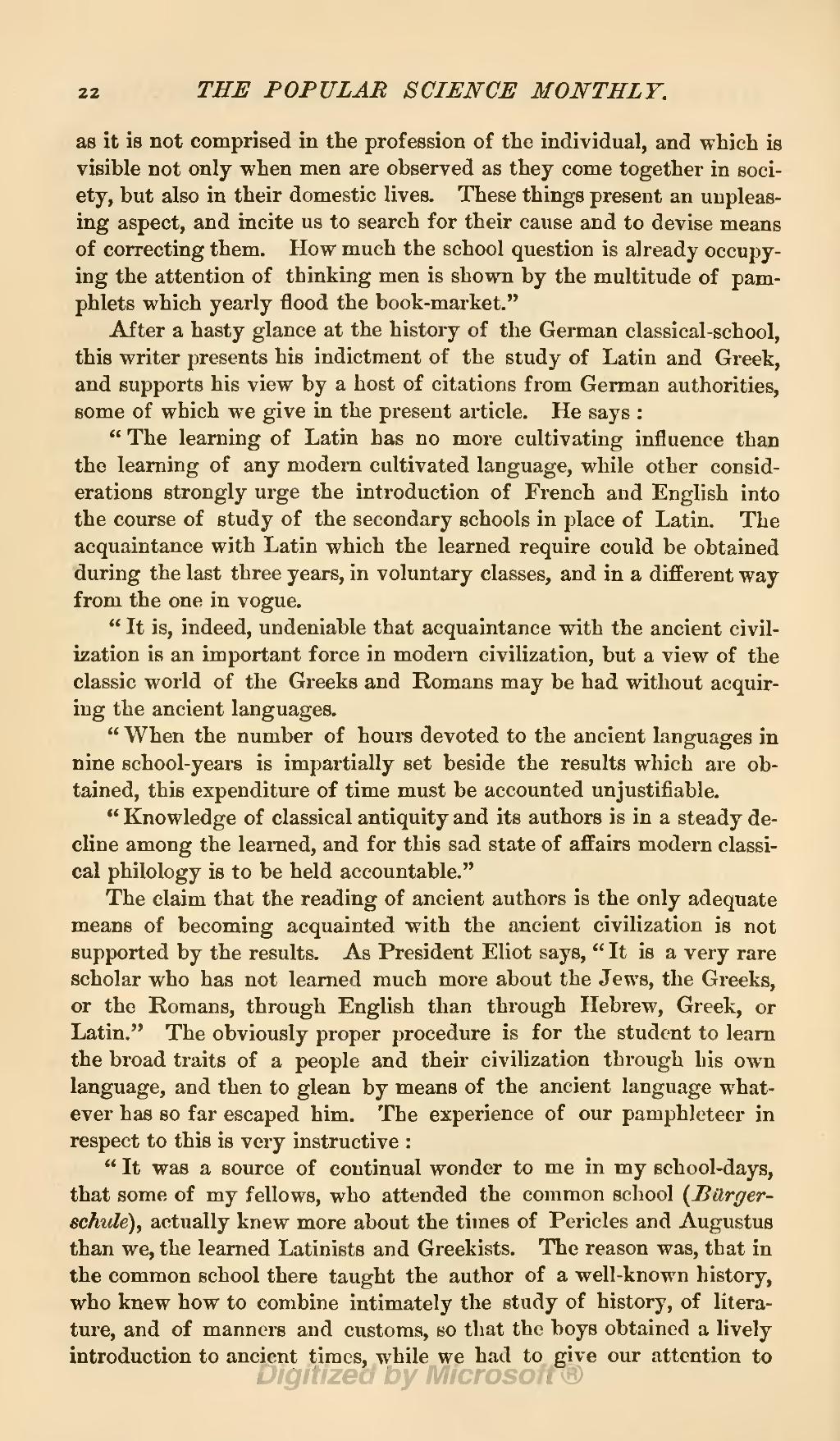as it is not comprised in the profession of the individual, and which is visible not only when men are observed as they come together in society, but also in their domestic lives. These things present an unpleasing aspect, and incite us to search for their cause and to devise means of correcting them. How much the school question is already occupying the attention of thinking men is shown by the multitude of pamphlets which yearly flood the book-market."
After a hasty glance at the history of the German classical-school, this writer presents his indictment of the study of Latin and Greek, and supports his view by a host of citations from German authorities, some of which we give in the present article. He says:
"The learning of Latin has no more cultivating influence than the learning of any modern cultivated language, while other considerations strongly urge the introduction of French and English into the course of study of the secondary schools in place of Latin. The acquaintance with Latin which the learned require could be obtained during the last three years, in voluntary classes, and in a different way from the one in vogue.
"It is, indeed, undeniable that acquaintance with the ancient civilization is an important force in modern civilization, but a view of the classic world of the Greeks and Romans may be had without acquiring the ancient languages.
"When the number of hours devoted to the ancient languages in nine school-years is impartially set beside the results which are obtained, this expenditure of time must be accounted unjustifiable.
"Knowledge of classical antiquity and its authors is in a steady decline among the learned, and for this sad state of affairs modern classical philology is to be held accountable."
The claim that the reading of ancient authors is the only adequate means of becoming acquainted with the ancient civilization is not supported by the results. As President Eliot says, "It is a very rare scholar who has not learned much more about the Jews, the Greeks, or the Romans, through English than through Hebrew, Greek, or Latin." The obviously proper procedure is for the student to learn the broad traits of a people and their civilization through his own language, and then to glean by means of the ancient language whatever has so far escaped him. The experience of our pamphleteer in respect to this is very instructive:
"It was a source of continual wonder to me in my school-days, that some of my fellows, who attended the common school (Bürgerschule), actually knew more about the times of Pericles and Augustus than we, the learned Latinists and Greekists. The reason was, that in the common school there taught the author of a well-known history, who knew how to combine intimately the study of history, of literature, and of manners and customs, so that the boys obtained a lively introduction to ancient times, while we had to give our attention to
